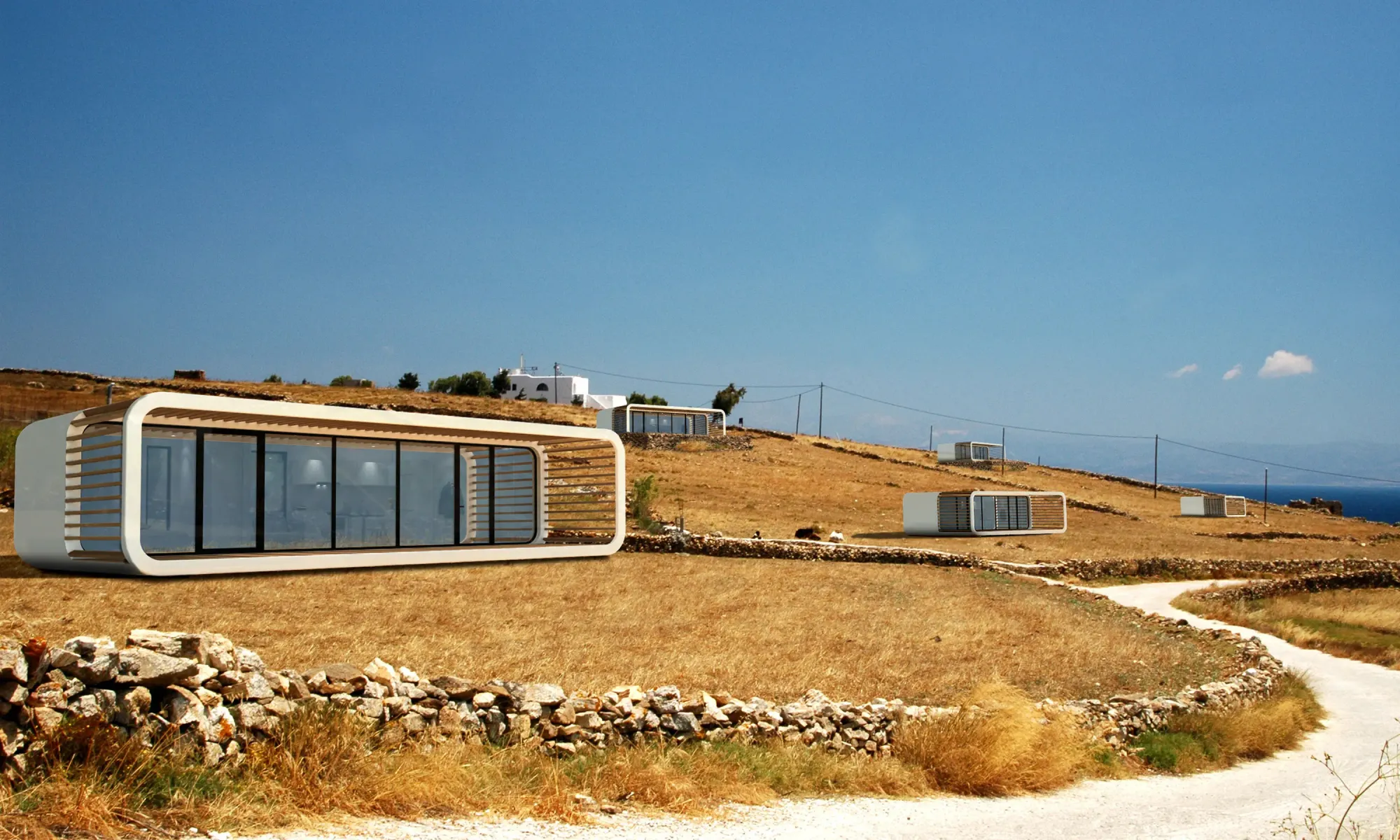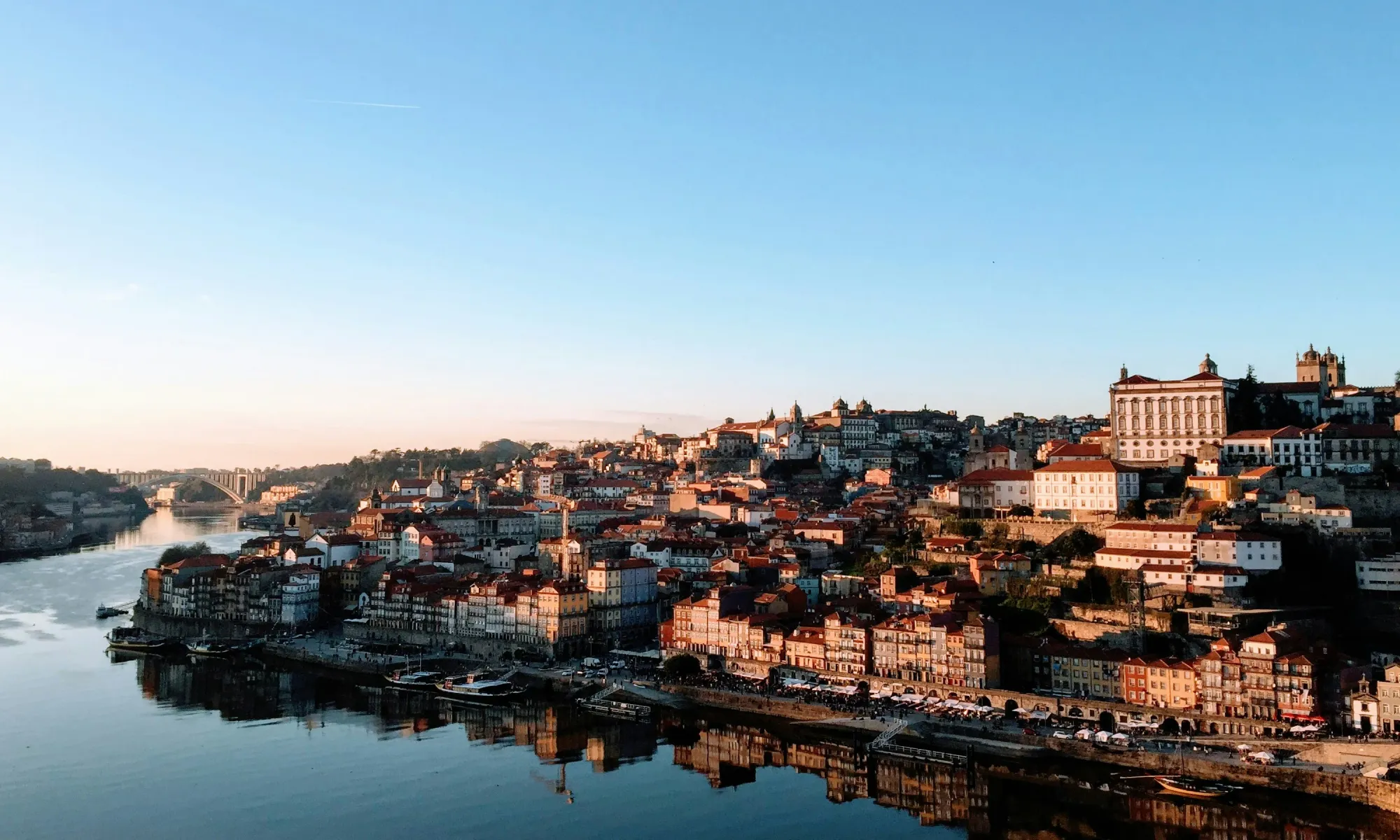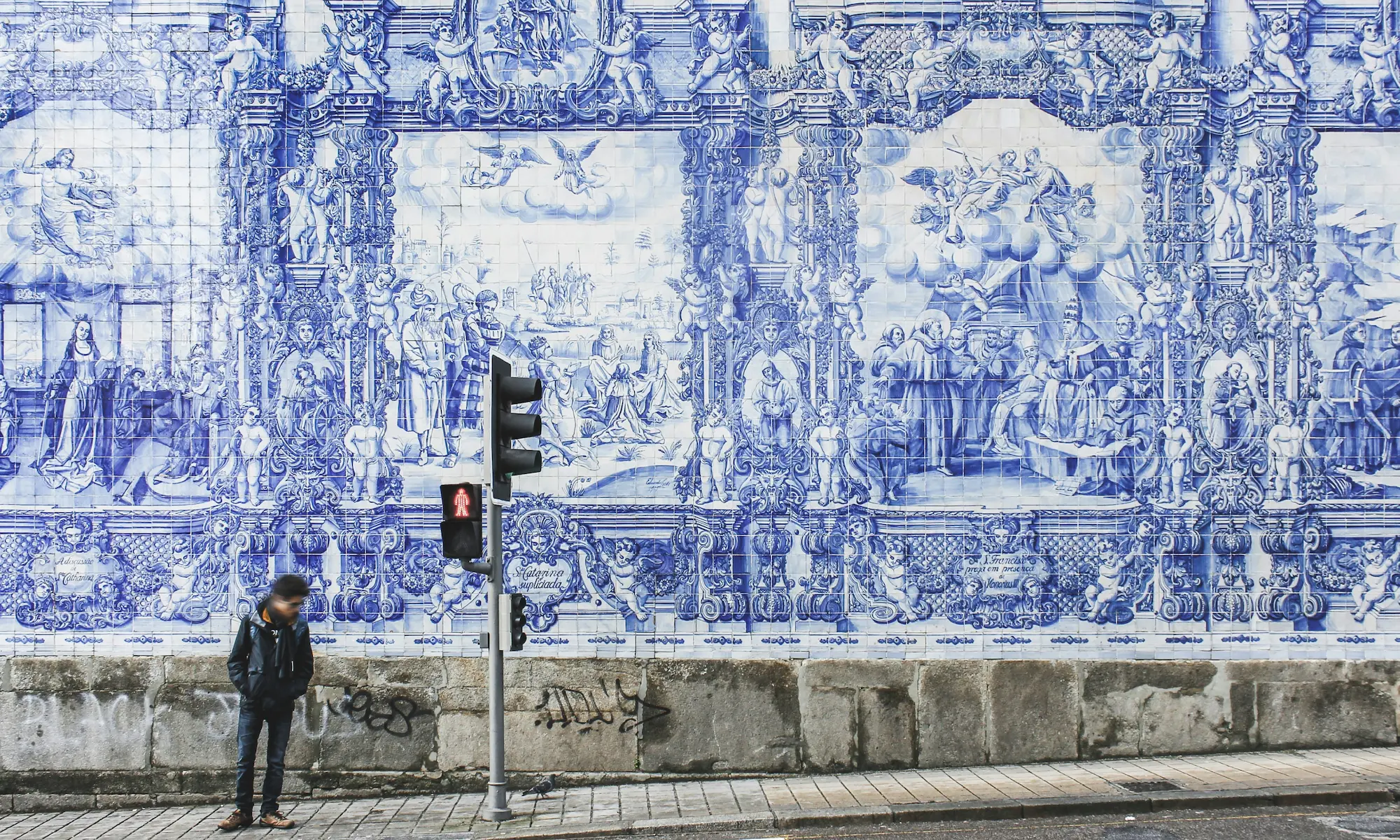Tokenization in Portugal: From Sunlit Homes to Digital Shares
Real estate tokenization is gaining ground in Portugal, combining blockchain innovation with the country’s open legal framework. From tiny eco-homes to luxury resorts, tokenized property is reshaping how people invest in Portuguese real estate.

In Portugal – a land of sun-soaked beaches, historic tile-lined streets, and vibrant culture – a new digital trend is quietly taking root. Imagine strolling through Lisbon’s old neighborhoods or the Algarve’s seaside towns knowing you own a fraction of a property there, all via your phone. This is becoming possible through real estate tokenization, which is bringing blockchain technology into the Portuguese property market.
The country has already shown its openness to innovation – since 2022, Portugal even allowed real estate purchases directly in cryptocurrency, including a landmark apartment sale in Braga paid entirely with 3 Bitcoin. Now, tokenization is the next chapter, promising to open property investment to more people in an easier, digital way. In this article, we explore how real estate tokenization in Portugal is developing, what projects are underway, and what it means for the future of property ownership in this beautiful country.
How Tokenization Works
To understand the excitement, let’s first explain tokenization in simple terms. In short, tokenization is a way to divide a real property into many small digital parts, called tokens. For example, a house in Portugal worth €200,000 can be split into 1,000 tokens. Each token might cost €200 and gives a small share of the house. If the house makes money, like from rent or a sale, token holders earn a part of that income.

Everything is stored on a blockchain – a secure digital system that tracks who owns what. Tokens can be bought or sold online, often much faster and cheaper than traditional real estate deals.
This makes real estate:
- Easier to access for small investors
- Faster and cheaper to trade
- More transparent and secure
Tokenization is helping Portugal offer new, digital ways for more people to invest in property.
Portugal’s Path Toward Tokenized Real Estate
Portugal has been creating a friendly environment for crypto and blockchain in recent years, which sets the stage for tokenization. Notably, real estate deals via cryptocurrency have grown – by early 2025 around 3–5% of European property listings accepted crypto payments, and Spain led the trend with Portugal close behind, thanks to transparent regulations and incentives. Portuguese officials have clarified that buying property with crypto is legal under certain guidelines. For example, the national notary authority in late 2024 formally acknowledged cryptocurrency as a means of payment for property sales, signaling that even notaries are prepared to handle digital transactions. This progressive stance makes buyers and sellers more comfortable trying new tech-driven approaches.

On the regulatory front, Portugal aligns with European Union rules that support tokenization while protecting investors. In 2024, the EU’s MiCA (Markets in Crypto-Assets) regulation began to take effect, providing clear rules for crypto-assets. Importantly, MiCA excludes tokenized assets that qualify as securities – meaning if your real estate token behaves like a share or bond, it’s treated under normal securities law.
In practice, Portugal treats real estate tokens as securities, just like stock shares, with the same legal safeguards (“same activity, same risk, same rules”). In fact, Portugal updated its laws in August 2023 to accommodate blockchain finance: a decree (No. 66/2023) explicitly recognized tokenized securities as valid book-entry securities, giving them the same legal status as traditional securities in registries. This change makes it easier to issue and trade tokenized property shares within the existing financial framework.
The government is also encouraging innovation. Back in 2021, Portugal became one of the first EU countries to launch a regulatory sandbox for new tech, called Technological Free Zones. This sandbox allows projects – including blockchain and tokenization pilots – to be tested under supervision, even if some rules need temporary relaxation to foster innovation. Such initiatives show that authorities want to learn and adapt alongside new technologies rather than block them outright.
Meanwhile, oversight is being refined: the Bank of Portugal currently oversees crypto service providers (exchanges, etc.) under anti-money laundering laws, and Portuguese regulators are gearing up to implement the new EU rules by appointing clear supervisors for crypto-assets. All this adds up to a generally supportive climate for tokenization, where companies know the guardrails and investors have some protection.

Crucially, Portugal’s openness is not just on paper – it’s happening in real markets. The country’s reputation as a “crypto-friendly” hub (for a time, individuals paid no tax on crypto gains, attracting crypto investors) has contributed to real estate tech experiments. As mentioned, in 2022 a property in Braga was sold directly for Bitcoin without conversion to euros, under notary supervision. This was one of the first deals of its kind in Europe and underscored Portugal’s practical acceptance of blockchain-based transactions. By mid-2025, the pieces – legal clarity, professional acceptance, and public interest – were in place for tokenized real estate offerings to emerge.
Real Projects and Cases in Portugal
Theory is coming to life through several pioneering projects in Portugal that showcase what tokenization can do. While much of the world was talking about tokenizing skyscrapers or office towers, one Portuguese initiative took a different twist: tiny homes by the coast. A local startup called OWR Invest is developing a small community of eco-friendly tiny houses on the Alentejo coast – and they’re using tokenization to fund it. OWR is developing a small community of tiny-homes on a 1.5-hectare seaside plot with a sustainability focus. The idea is to blend green living, tourism, and blockchain ownership.
According to the project’s plans, the land and the cabins will be divided into digital tokens available on OWR’s platform. Each token represents fractional ownership of the property, so an investor from anywhere in the world can buy a token to own part of this coastal retreat. Token holders would earn income from rental guests (short-term holiday stays in the tiny homes) and also benefit if the property’s value rises over time, all tracked via blockchain smart contracts. Essentially, OWR is turning a boutique hospitality project into a co-owned venture: people who love sustainable tourism can invest small amounts and share in the profits, without having to buy land or manage property themselves.

What makes the OWR case especially interesting is its ethos. The homes are modular, lightweight structures that minimize environmental impact – they can be installed or removed with little disturbance to nature. The project collaborates with eco-housing designers and involves local architects and planners to ensure it fits the landscape. OWR highlights that tokenization isn’t only for big luxury developments; it can also support niche, meaningful projects.
By tokenizing this tiny-home village, OWR broadens who can take part: a local surfer, a schoolteacher abroad who loves Portugal, or a tech-savvy investor all could own a piece of a sustainable resort. The company notes that final legal terms are being ironed out to comply with regulations, but the concept is a proof of how blockchain can power a grassroots real estate venture. In fact, OWR’s initiative was featured as a notable example of Portuguese tokenization, showing that even a small coastal project can leverage this technology to connect investors with green real estate.
Another headline project comes from Portuguese fintech Lympid, based in Braga. Lympid specializes in using blockchain for investments and made news by announcing a tokenized luxury development in Comporta – one of Portugal’s most upscale coastal areas. Comporta, a scenic region known for its beaches and high-end retreats, is seeing a new property development that will be launched as tokenized shares in the second half of 2025.
Investors will be able to buy fractions of this luxury real estate via crypto assets, rather than purchasing whole villas or units. This plan, reported in Portuguese financial media, signals on-shore adoption of blockchain for primary real estate projects. According to Lympid’s co-founder André Lages, the development is near the famous Sublime Comporta resort and will involve a top-tier hotel brand, aiming to attract international buyers who can now invest fractionally.

It’s a way to open exclusive real estate to a wider pool of investors. Interestingly, Lympid is positioning itself as a bridge between traditional finance and the decentralized Web3 world – they allow people to invest in high-end assets by converting euros into crypto tokens, all within a compliant platform. This particular Comporta project is not a one-off: it fits into Lympid’s broader strategy to tokenize various asset classes (more on that soon), and the startup even plans to expand abroad. They have eyes on the United States, with a partnership in Florida alongside U.S. real estate blockchain firm Propy to tokenize property there. It’s fascinating to see a Portuguese company expanding tokenized real estate internationally, highlighting Portugal’s role in the global tokenization movement.
Portugal also saw what’s billed as its first tokenized resort launch in mid-2025. In July 2025, an exclusive event in Lisbon marked the launch of the Sankofa Melides Resort, described as “a pioneering development that blends regenerative hospitality with cutting-edge blockchain technology” — essentially, the first tokenized real estate project in Portugal. Sankofa Resort, nestled among cork and pine forests near Melides (just south of Comporta), is a luxury eco-resort offering fractional ownership through tokens.
Attendees at the launch could learn how tokenization was opening the resort’s investment to a global audience, letting people buy into a high-end hospitality project that prioritizes sustainability and community. The concept is similar: instead of a few wealthy buyers owning a resort outright, many smaller investors can own tokenized shares of a resort and potentially benefit from its rental income and growth.
The project marketed itself as “a new model of sustainable, conscious tourism”, underlining that tokenization can align with ethical, sustainable development goals. For Portugal’s tourism-rich economy, this model could be quite revolutionary – imagine travelers not just visiting a resort, but actually owning a part of it through tokens. It creates a deeper connection and also democratizes an investment opportunity that used to be available only to big capital. The Sankofa case demonstrates early adoption of tokenization in high-end tourism real estate, and it’s fitting that it’s happening on Portugal’s Alentejo coast, an area known for unspoiled nature and now, innovative investment models.

Additionally, a blockchain startup called AssetLink (based in Portugal) grabbed attention in 2023 by tokenizing apartments and even giving some away to promote its ecosystem. AssetLink created a platform with its own token ($ASET) representing stakes in properties. In a bold move to prove the concept, the company gave away four tokenized apartments in Portugal to $ASET token holders via a raffle. This wasn’t just a gimmick – winners actually received ownership of real Portuguese apartments through the platform, demonstrating how holding asset-backed tokens can translate into tangible real estate ownership.
The campaign underscored tokenization’s promise of making property investment more inclusive and engaging. By late 2023, AssetLink was showing that even regular people participating in a token ecosystem could end up owning bits of real estate, something almost unimaginable just a few years ago. It’s another example of how startups in Portugal are innovating in the tokenization space, using creative strategies to merge digital assets with real-world property.
What all these projects share is a vision that real estate investment can be opened up and modernized. Whether it’s tiny eco-homes, a luxury resort, urban apartments, or a beach development, they are proving the viability of tokenized ownership models. They also highlight Portugal’s attractiveness as a market: the country’s stable property values, strong tourism sector, and investor-friendly policies make it a ripe ground for these experiments. Rather than claiming to be a world leader, Portugal is serving as a testbed for practical tokenization use cases that could scale up in the future.
Local fintech and proptech entrepreneurs are working within the legal framework to ensure these tokens are properly issued as securities, with investor rights safeguarded. That includes doing KYC (know-your-customer checks), providing clear documentation, and in some cases working with regulators through sandboxes or pilot programs. The early projects have generally been cautious and boutique in scale – a smart approach to gain trust before tokenization can go fully mainstream.
Beyond Real Estate: Tokenizing Horses, Art and More
While property is the main focus, tokenization in Portugal isn’t limited to real estate. One striking aspect of the Lympid platform is its diverse range of tokenized assets beyond property. Currently, Lympid offers four categories for fractional investment: competition horses, luxury watches, fine wines, and even Hermès handbags. Yes, you read that right – you can own a slice of a champion horse or a share of a high-end Swiss watch through tokens. For example, Lympid already has a racehorse valued at €1.2 million listed on its platform, divided into digital shares for investors to partake in its ownership.

By the end of 2025, Lympid plans to introduce five new categories, expanding into real estate, classic cars, rare whiskey, more high-end horses, and fine art. One highlight announced is the tokenization of a painting by the renowned artist Alex Katz, valued at €100,000. Through Lympid’s platform, art enthusiasts could buy tokens representing shares of this painting, effectively co-owning a piece of blue-chip art without having to spend six figures alone.
This approach to art ownership can make investing in famous artworks more accessible, and it provides liquidity (since tokens can be traded) in a market that’s usually very illiquid (selling an entire painting can take time and the right buyer). The inclusion of classic cars and rare whiskey is equally intriguing – Portugal has collectors and connoisseurs in both realms, and tokenizing these items means enthusiasts can invest in them even if they can’t afford an entire vintage car or cask of whiskey. It’s like turning passion assets into investable, shareable products.
These developments show that tokenization in Portugal is part of a broader trend of asset tokenization across various fields. Real estate is leading the way, but the same principles are being applied to collectibles, luxury goods, and beyond. Portugal’s role here is often as the home base for startups driving this innovation. By acting as an early adopter market, Portugal helps prove the concepts that might later spread globally.
What’s Next for Portugal?
Tokenization in Portugal is still young but growing. Thanks to friendly laws, tech startups, and first real estate pilots, more projects may soon appear — especially in tourism, green housing, and co-living spaces. New EU rules (like MiCA) will make it easier for companies to legally offer property tokens. Investors will know their rights, and platforms will be better regulated. This should help build trust.

We might also see local banks and funds work with tokenization platforms, or the government test blockchain in land registries or public housing.
For everyday people, tokenization could make property investment simpler. Buying a €500 token in a Lisbon apartment may soon be as normal as buying stocks. With the right education and clear rules, this model could grow.
One forecast by regional real estate experts is that by 2030, up to 10–12% of Europe’s real estate market could involve crypto-based transactions (including tokenized deals) if current trends continue. If that holds true, Portugal will certainly be a part of that story, especially in sectors like vacation properties and new developments where it already excels. We might see tokenized property funds, REIT-like token trusts, or even secondary markets in Portugal where people trade their real estate tokens under oversight – creating liquidity events that traditional real estate lacks.

In conclusion, tokenization in Portugal is unfolding in an exciting, inclusive way. The country is marrying its rich traditions with cutting-edge blockchain tech. From a quiet Alentejo tiny-home hamlet to luxury coastal resorts and urban flats, a thread connects them all: the idea that anyone should be able to invest in and benefit from Portugal’s growth, not just the wealthy or the institutional players. Portugal is showing that you can welcome innovation without abandoning safeguards – a narrative of bridging old and new.

